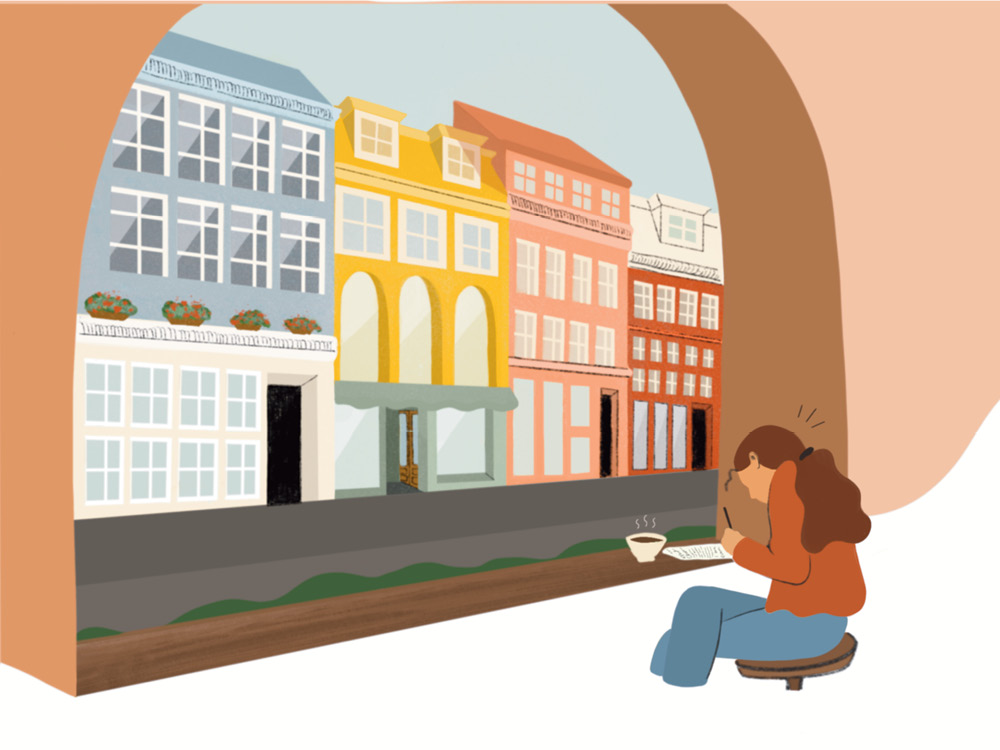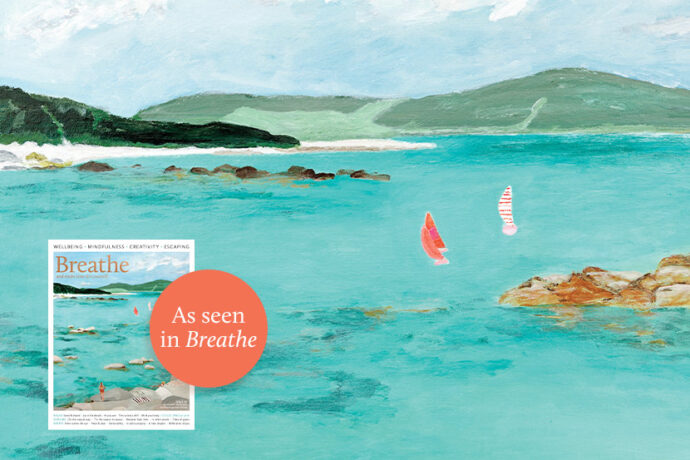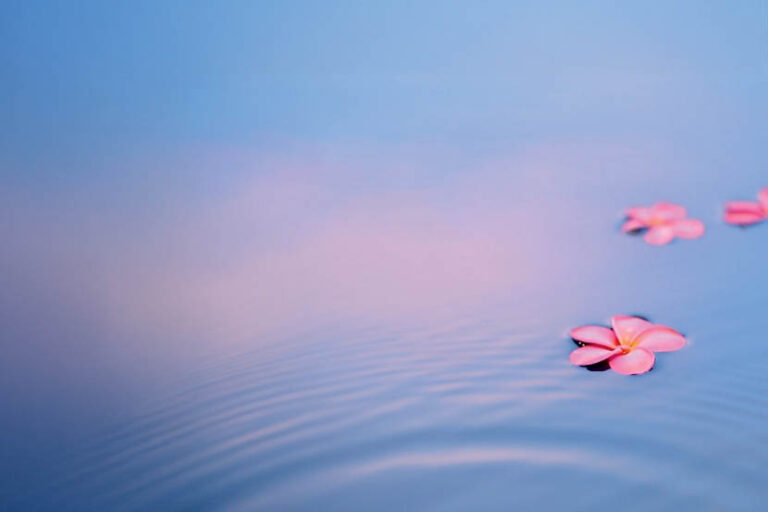
If you go exploring, be it near or far, don’t forget to pack a notebook and pen
It broadens the mind, reveals exciting cultures, presents fresh experiences, and offers an opportunity to break free from the daily routine. To travel somewhere new, near or far and for one day or six months, is to have the chance to enrich your life and to challenge – or even change – your perspective. It can prove to be one of life’s true deep-and-meaningful experiences. And writing about it is a way to add further depth, encapsulating everything you could see, hear, smell, and even touch or taste at a given moment.
A great way to do this is to take a travel journal on every trip and view your destinations with a writer’s eye, exploring your thoughts, your inner perception of the world around you and everything your senses filter through to the mind. And far from being just a record that you look back on in years to come (though that in itself is wonderful), it’s a way of living more intensely in the present, of drawing your attention to things you might not have noticed otherwise.
As poet and philosopher Henry David Thoreau said: ‘It doesn’t matter where or how far you go … the important thing is how alive you are. Writing of every kind is a way to wake oneself up and keep as alive as when one has just fallen in love.’
For the past 14 years I’ve lived outside the land of my birth, and my notebook has never been far from my side. It was my constant companion during my travels across Asia and it is the repository of all that I find charming (or not) about Europe.
For me, the process of writing while travelling is much more than noting down what I’ve done each day. It creates a parallel world of my thoughts and words, which help me feel more alive and present. I could, for example, have taken a photograph of the golden light of a Tuscan sunset shining onto an old stone house. But why, when the experience was so much more than this? It was the warmth of the sun and how the beauty of the scene stirred deep emotions within me.
Similarly, I could have snapped an image of the food I shared with a friend at a local restaurant, but it wouldn’t have conveyed the complexity of flavours, the cosy tiny surroundings, our shared laughter, or the eavesdropping couple sitting at the table next to us. Committing these asides to paper managed to do all of this and cemented these peak experiences to memory. Equally, a notebook is a non-judgemental place to be honest about the not-so-picture-perfect aspects of a journey, be they grimy streets, breathtakingly unpleasant odours, or disastrous meals. Here are a few tips for enriching your journey while keeping a travel journal.
Set your intentions
In his book The Art of Travel, philosopher Alain de Botton explains how much of the joy of travel is found in its anticipation. The book begins with him being lured away from a wintry English scene by pictures of the sun-drenched beaches of Barbados. Here he describes how anticipating and imagining a trip is a way of crafting it into something different from reality: ‘The anticipatory and artistic imaginations omit and compress, they cut away the periods of boredom and direct our attention to critical moments, and without either lying or embellishing, thus lend to life a vividness and a coherence that it may lack in the distracting woolliness of the present.’
He also relays the story of Jean des Esseintes, the central character in Joris-Karl Huysmans’s 1884 novel À rebours or Against Nature, as evidence that the anticipation of a journey can be as meaningful as the travel or the destination. Huysmans’s portrayal is of a nature-hating man who longs to visit Holland, but ends up feeling more connected to it while looking at images in a museum than he does with the real unedited country.
With this in mind, beginning your journal as soon as any trips slide into view is a great way to start the process. You could explore why you’re drawn to a certain place or country, what you hope to get from the holiday, and how you’d like to feel at the end of it. Setting intentions for a trip can help you to get the most out of it. As well as the obvious guidebooks and online information, read around your destination and look for novels set in the area. If you were heading to the Greek island of Kefalonia for example, you might include Louis de Bernières’s Captain Corelli’s Mandolin on your reading list, while travellers to Nigeria would get an insightful account of the country’s civil war in Chimamanda Ngozi Adichie’s Half of a Yellow Sun. More than information for a holiday itinerary, they offer vision and history and can help to fuel anticipation.
What to write – and when
In my teenage diary I wrote down everything I did each day. After a while however, it became a chore. Some days were empty and full of nothing, while others were awash with excitement and busyness and offered plenty to write about but little time to do it. Keeping a journal works well if you write when you feel the urge, so don’t put yourself under any pressure to diligently record the events of every day before bedtime. If that suits you, that’s fine, but it can be equally as productive to scribble whenever you have a spare moment or even at breakfast.
Choose what works best for you. Equally, your note-taking could influence where you go and the experiences you have. If you see an interesting café, for example, which has a perfect table where you can sip a coffee while scribbling away, it could become an adventure in itself. Having a journal as a constant companion reminds you to see things through the eyes of a writer. You might choose to note down the places of everywhere you visit, the names of everyone you talk to and the ingredients of every dish you eat, but equally you might decide to go for a broader sweep – recording feelings and sensations – and eschew the minutiae. You might well do both. The important thing is not to pressure yourself to mention everything all the time. Jump from moment to moment, skip days, go back and forth – follow your thoughts, letting your mind decide what to include.
Look beyond the actualité
As well as writing about where you’ve been, what you’ve seen, and what you’ve done, include how you felt and what you thought. Is the trip fulfilling your dreams, or have there been disappointments? Being honest can often provide rich, peculiar, and entertaining insights – perhaps the Leaning Tower of Pisa didn’t live up to your expectations, but you loved the fact that a bus driver encouraged your broken Italian and was happy to let you practise it for a few minutes. A candid approach also allows you to record lessons learned – both positive and negative – and to appreciate that some of the best adventures happen when you least expect them.
Bring in the senses
Deepen your perception of an experience by exploring it through all your senses. This is a great activity if you’re gazing out of a train or bus window, while sitting in a street café, or lying down on the grass in a bustling park. You could begin with a meditation and spend a minute or two focusing on each of the senses before creating sensory postcards where you write down a few words or sentences describing the scene from the point of view of each one – sight, sound, taste, touch, and smell. Capture your experiences with words.
You could explore why you’re drawn to a certain place or country, what you hope to get from the holiday, and how you’d like to feel at the end of it
Use your imagination
Throw out the rulebook about what’s allowed in a diary. Fact and fiction can intermingle. If you’re people-watching at a busy bus station, for example, imagine the lives of your fellow passengers; if you’re staying at an old villa, speculate about the people who built it and its original occupants; or if a waft of an unfamiliar spice hits your nose, ponder what it might be, which dish it might be used in, and who might be cooking with it. Let everything around you inspire you and then allow your imagination to fill in the gaps.
See the big picture
Getting lost, delayed flights, double-booked accommodation. Travel hiccups – and full-blown dramas – have the potential for great diary entries. Your journal can be a friend in times of crisis and conflict (both good starting points for fiction, too) and help to put smaller concerns into perspective and work out solutions to bigger problems. It might even be able to allay some of the stress. Travelling isn’t always easy, but often that’s where the most interesting stories lie. Don’t forget to pack your pen.


















